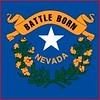Here’s another fact: FDR campaigned on a “balance the budget” platform in 1932. It wasn't until after he was elected (and before the inauguration) that he set about creating programs on a massive scale. The bank collapse of late’32 and early ’33 was a phenomenon that neither he nor Hoover had anything to do with. And just for the record: when Social Security was instituted, and the retirement age was set at 65, the average life span of an American man was 63. It was medical science operating in a free market that transformed what was meant to be a cash cow for the Treasury into a constantly bankrupt retirement plan.
There are some interesting coincidences between then and now, but the simple fact is we are in uncharted territory. We are in the wilderness, with no Indian guides, no footpaths and no rivers to follow. The only real similarity is that the experts, both then and now, don’t have any answers. Vox Day sums it up with a quick look at the 4 major economic schools, and their inability to solve the current dilemma:
The Marxian model breathed its last breath in the early 1990s. While the Keynesian model is seeing a revival in the misguided enthusiasm for public works spending in the United States and United Kingdom, a second transmutation of a severe recession into a great depression should kill it off for good. The Monetarist model is already on its last legs; the failure of the Fed to inflate its way out of the current crisis should suffice to finish it off. Even the Austrian theory, without question the most useful of the four economic schools, is poorly suited to account for the problems presented by exogenous factors.
The downturn in the stock market wasn’t just people losing money; it was people getting the hell out. It is said that there is $13 trillion in private capital parked offshore in Caribbean banks. God only knows how much is in Switzerland, or a thousand other places. Americans have plenty of money. What we don’t have is trust in the rules of the game, or the fairness of the referees. Restore the trust, and the players will return.
My hope for the next few years is that the rulebook will be rewritten, not just added to. I hope those in positions of responsibility will act responsibly, and for the good of their country. When the new rules come up for consideration, the rulers will need to write them with the good of the ruled in mind. For that to happen, they will need to trust us- the marketplace, we the people. Even Silent Cal could get behind that.




No comments:
Post a Comment